In recent years, the strong development of the telecommunications and internet sectors has created many new development opportunities but also posed challenges in state management of cyber security, especially in protecting and supporting children to interact healthily and creatively in the online environment.
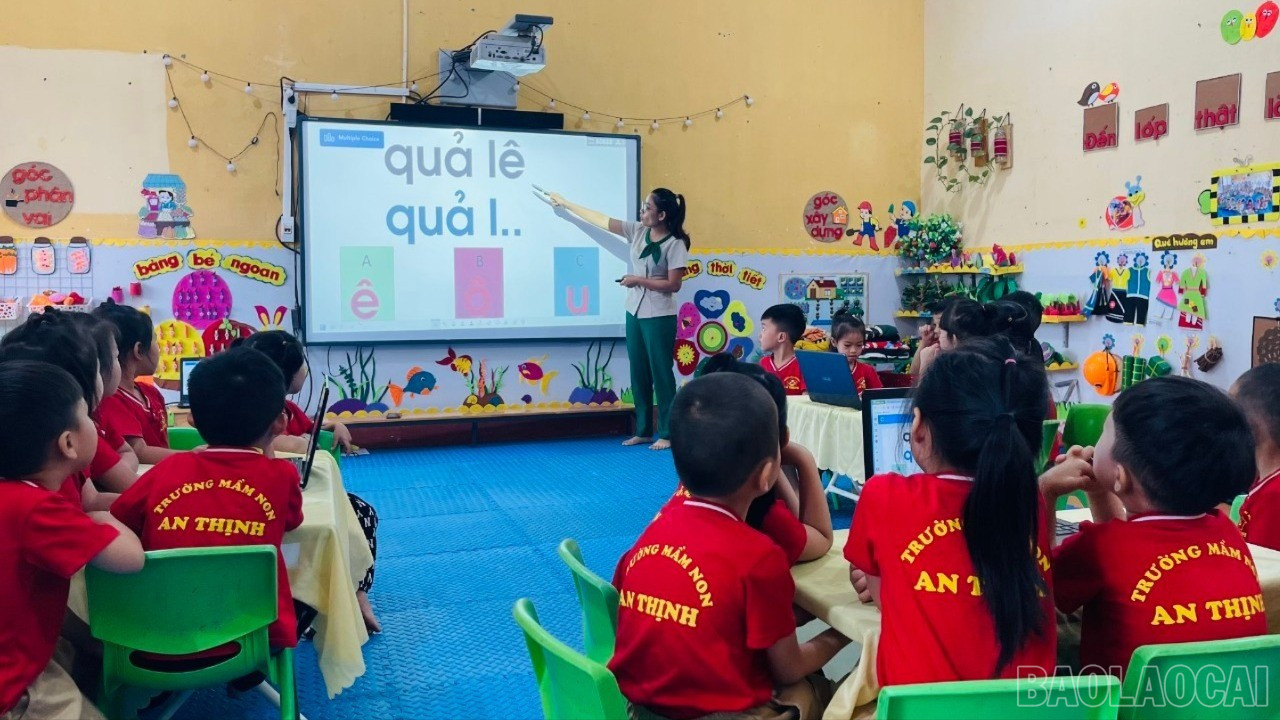
The Internet helps children easily access knowledge, practice digital skills and expand communication and creativity, thereby helping them develop comprehensively. However, without an effective "filter", children are easily led into harmful trends, potentially dangerous virtual relationships and physical insecurity. The problem of "online kidnapping", deviant, toxic content, bullying, fraud... shows that there are many pitfalls and risks for the young generation in cyberspace.
Child abuse crimes today often use many sophisticated methods and tricks associated with the development of social networks, dating applications, and online games, such as subjects getting acquainted, giving gifts to lure and entice children, and making appointments to meet in real life to commit abuse.
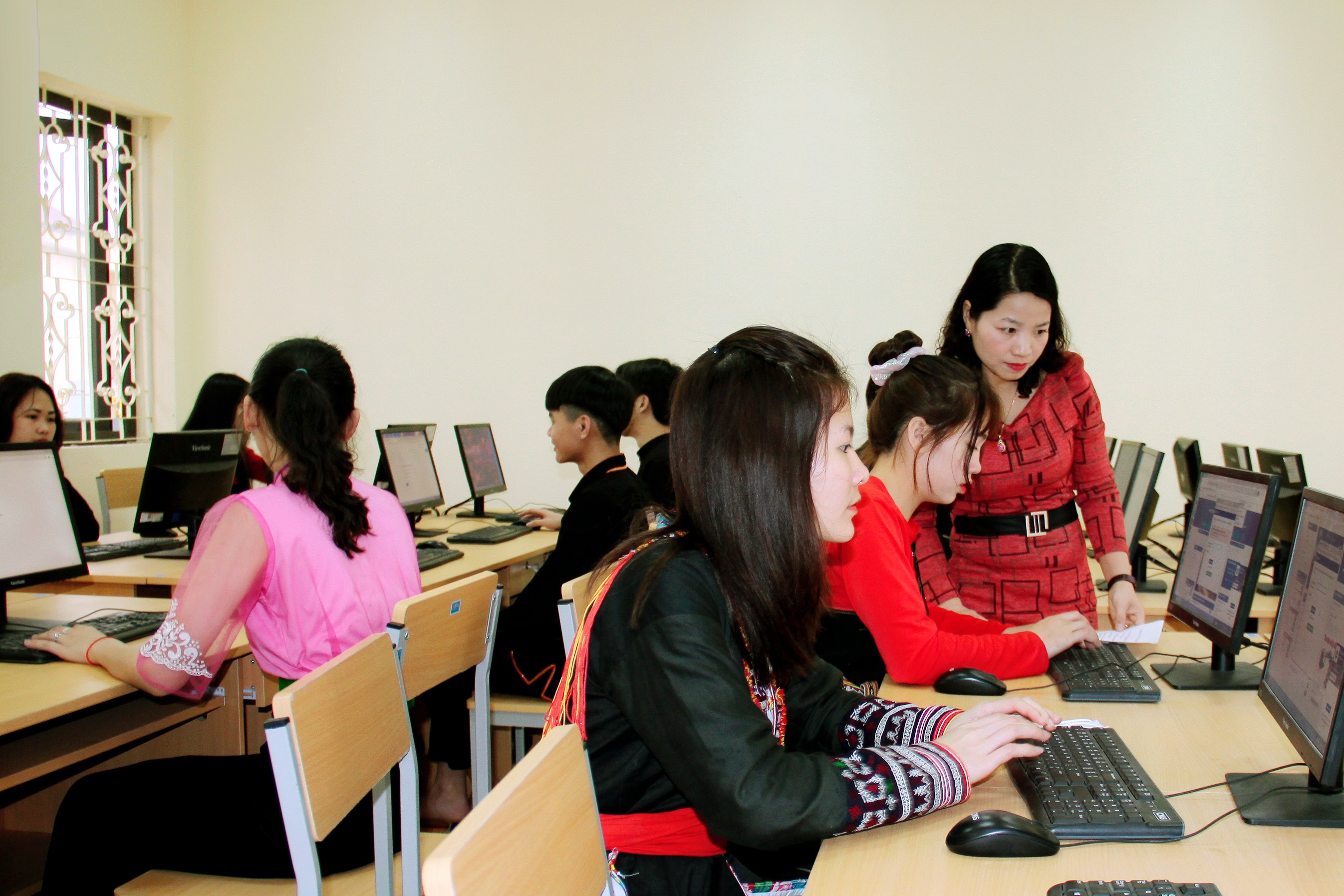
These subjects lure children to send sensitive images and videos , then threaten, blackmail or mentally control them to continue committing abusive acts online. Along with that, they exploit children's lack of knowledge about security to collect personal information, or spread malicious links to serve illegal acts.
The common point of these subjects is taking advantage of children's innocence and lack of digital skills, while exploiting loopholes in family and school management and supervision to commit crimes.
According to the Summary Report of 5 years of implementing Decision 830/QD-TTg dated June 1, 2021 of the Prime Minister approving the Program "Protecting and supporting children to interact healthily and creatively in the online environment, period 2021-2025", Lao Cai Provincial Police received and resolved 17/17 crime denunciations, reaching 100% of cases related to child abuse through the online environment.
In particular, it has promptly supported and protected the legitimate rights and interests of 19 victims, prevented further abuse from occurring; investigated, handled, and prosecuted 17 cases, 22 defendants related to child abuse. However, due to the influence of the online environment, in many cases, children have become the subject of violations and have been handled by authorities according to the provisions of the law.
In Lao Cai province, violations mainly focus on groups of behaviors such as: disturbing public order, intentionally causing injury (through the internet, subjects get acquainted, attract subjects of the same age, gather in densely populated areas, weave, swing, race, resolve conflicts, quarrel, fight); produce and trade prohibited goods (learn how to make fireworks online, then make them yourself and sell them to others for profit)...
In recent times, the province's functional departments have organized many training courses on knowledge and skills to prevent cyber abuse for students, teachers and officials; widely introduced the child support hotline system; organized provincial-level children's forums to discuss groups of issues related to children, including the topic of protecting children on social networks, creating opportunities for children to express their opinions, contributing to creating a safe and healthy online environment for children.

Like other schools in the province, De Xu Phinh Ethnic Boarding Primary and Secondary School, Phung Luong Commune has promoted the application of information technology in teaching, encouraging students to use the internet for lessons. Recognizing potential risks in the online environment, the school has promoted communication and guided students to use social networks safely.
A typical example is the “Safer with Google” program, which the school has been implementing since 2023. The program has a specially designed curriculum to guide students on how to use the internet safely, teaching them the basic principles of digital safety and digital citizenship so that they can confidently explore the online world.
Teacher Luong Thi Hong Hanh - Principal of the school shared: "I am safer with Google is one of many activities that the school has implemented in recent times to ensure safety for students in the online environment. Along with guiding students to use the internet safely, the school's teachers regularly grasp their thoughts and feelings, closely share with them their difficulties and questions, promptly prevent bad situations, and help them use the internet effectively for studying."
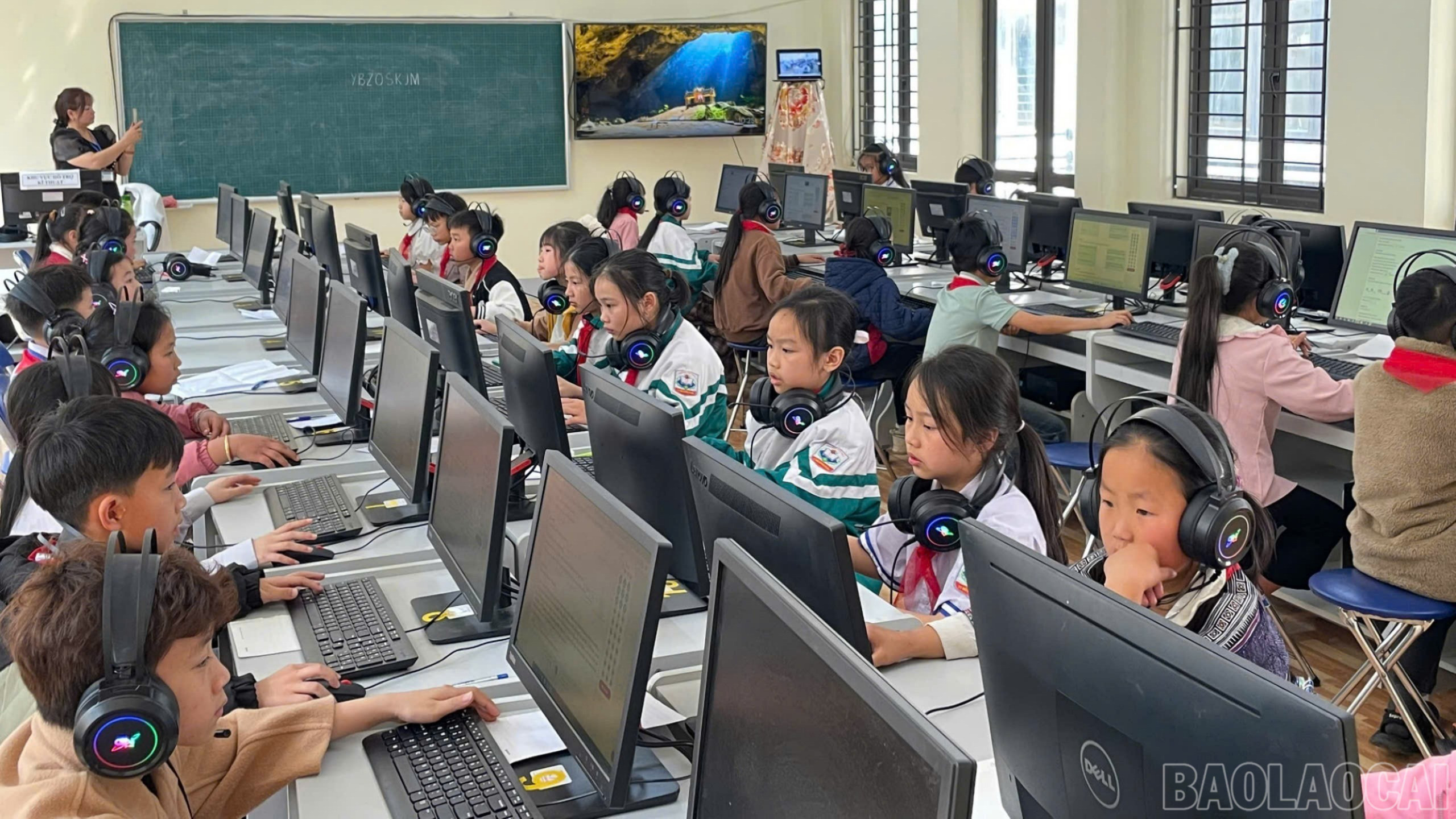
However, as technology continues to develop, the methods of child abuse on the internet are becoming more and more sophisticated. Therefore, updating new methods and tricks of high-tech criminals, training the capacity of law enforcement forces, and expanding communication to each family and school is still very urgent.
Schools in the area need to further promote activities to improve digital skills for students in schools through extracurricular activities and education outside of class hours; skills to recognize misinformation, protect personal data, manage digital identities, and skills to handle situations when being harassed; use interactive methods and real-life situations so that students know how to react when there are risks.
In particular, schools need to proactively coordinate and seek advice from experts from the province's functional sectors; further promote communication about self-protection in the online environment for students, considering this as a regular and continuous propaganda content during class activities, flag-saluting hours, and extracurricular activities...
Experts recommend that parents should openly discuss online activities with their children instead of absolutely prohibiting them; develop clear family rules about usage time, permitted content and behavior. Authorities need to invest in research on new trends and cybercrime methods and the effectiveness of intervention measures. In particular, schools need to proactively coordinate and seek advice from experts from the province's authorities; further promote communication about self-protection in the online environment for students, considering this as a regular and continuous propaganda content during class activities, flag-raising hours and extracurricular activities...
Protecting children online is not only about preventing immediate risks, but also about investing in the mental health, rights and future of children - the digital citizens of tomorrow. Families, schools and the entire community, with responsibility and perseverance, will certainly build a safe online environment where children can develop freely but still be fully protected.
Source: https://baolaocai.vn/lao-cai-tang-cuong-bao-ve-tre-em-tren-moi-truong-mang-post884005.html



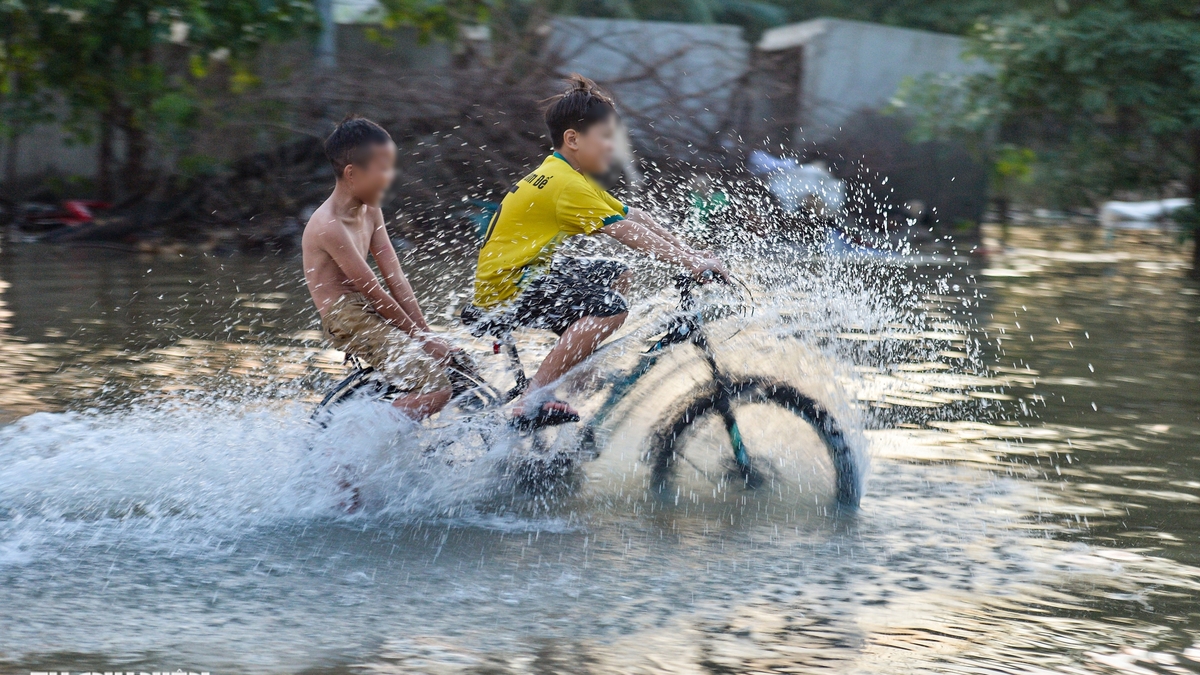


![[Photo] Prime Minister Pham Minh Chinh chairs the Conference to deploy the National Target Program on Drug Prevention and Control until 2030](https://vphoto.vietnam.vn/thumb/1200x675/vietnam/resource/IMAGE/2025/10/09/1759990393779_dsc-0495-jpg.webp)
![[Photo] Prime Minister Pham Minh Chinh chairs a meeting of the Government Standing Committee on overcoming the consequences of natural disasters after storm No. 11](https://vphoto.vietnam.vn/thumb/1200x675/vietnam/resource/IMAGE/2025/10/09/1759997894015_dsc-0591-jpg.webp)


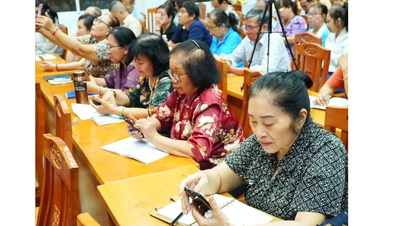


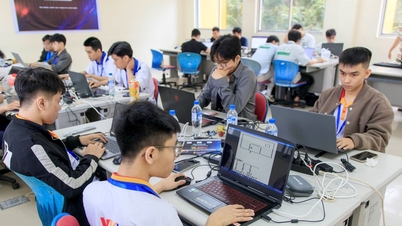

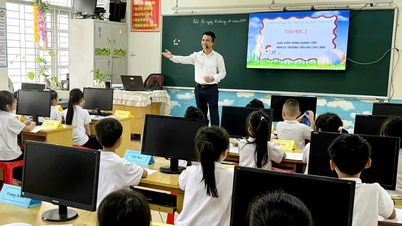






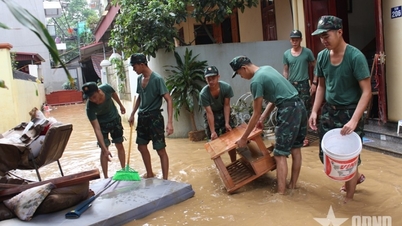

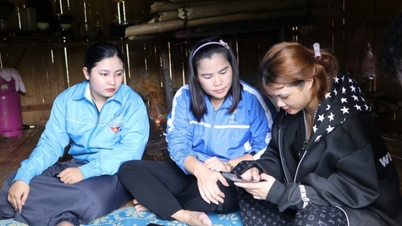


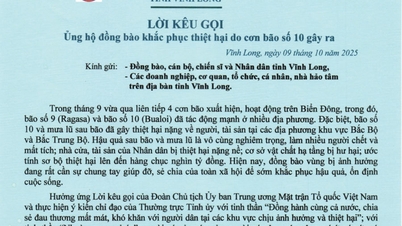





















































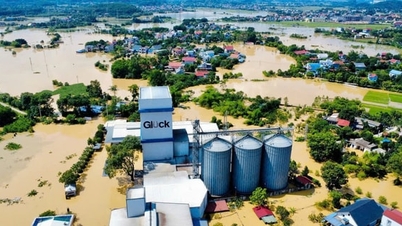




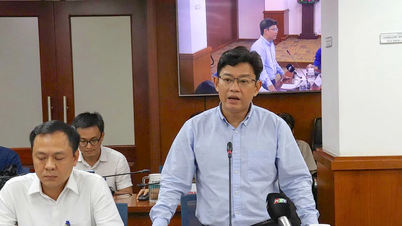















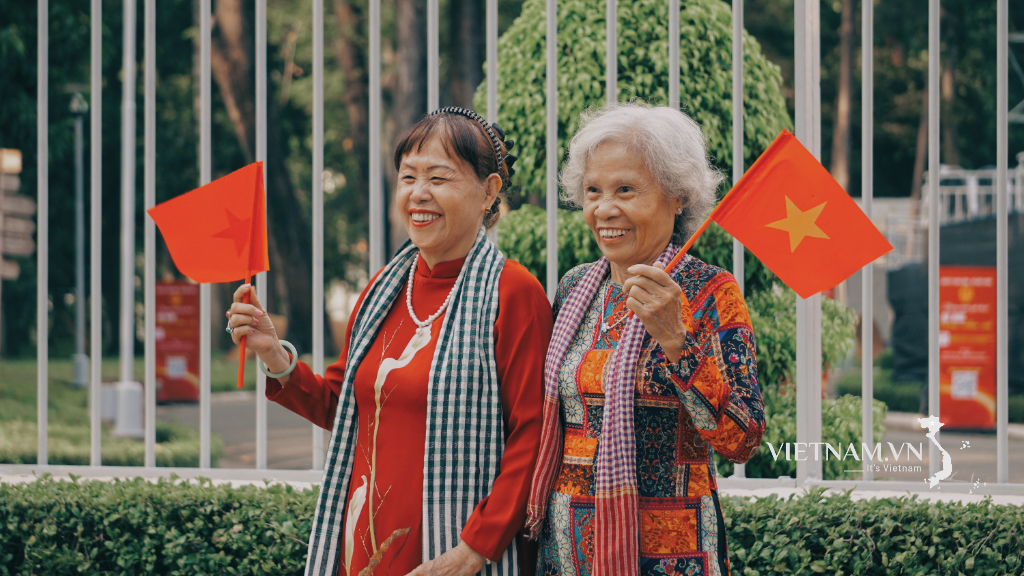
Comment (0)